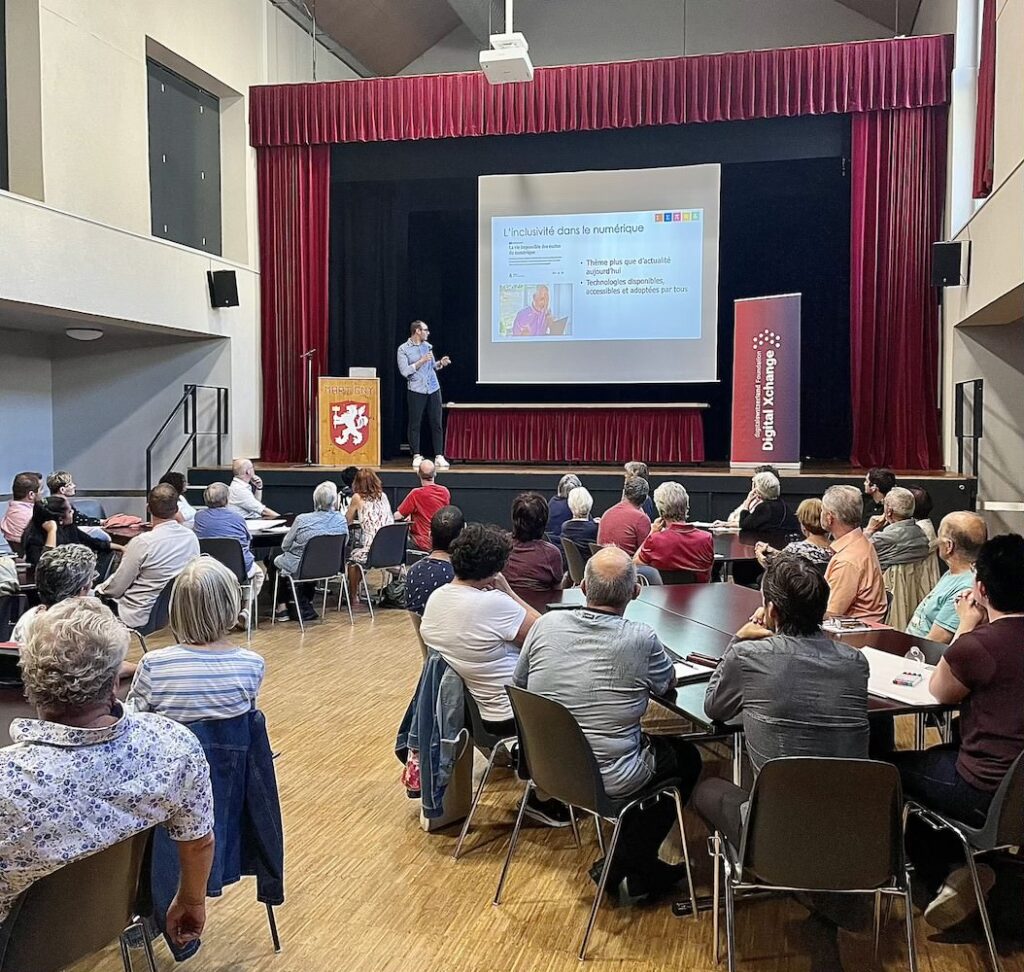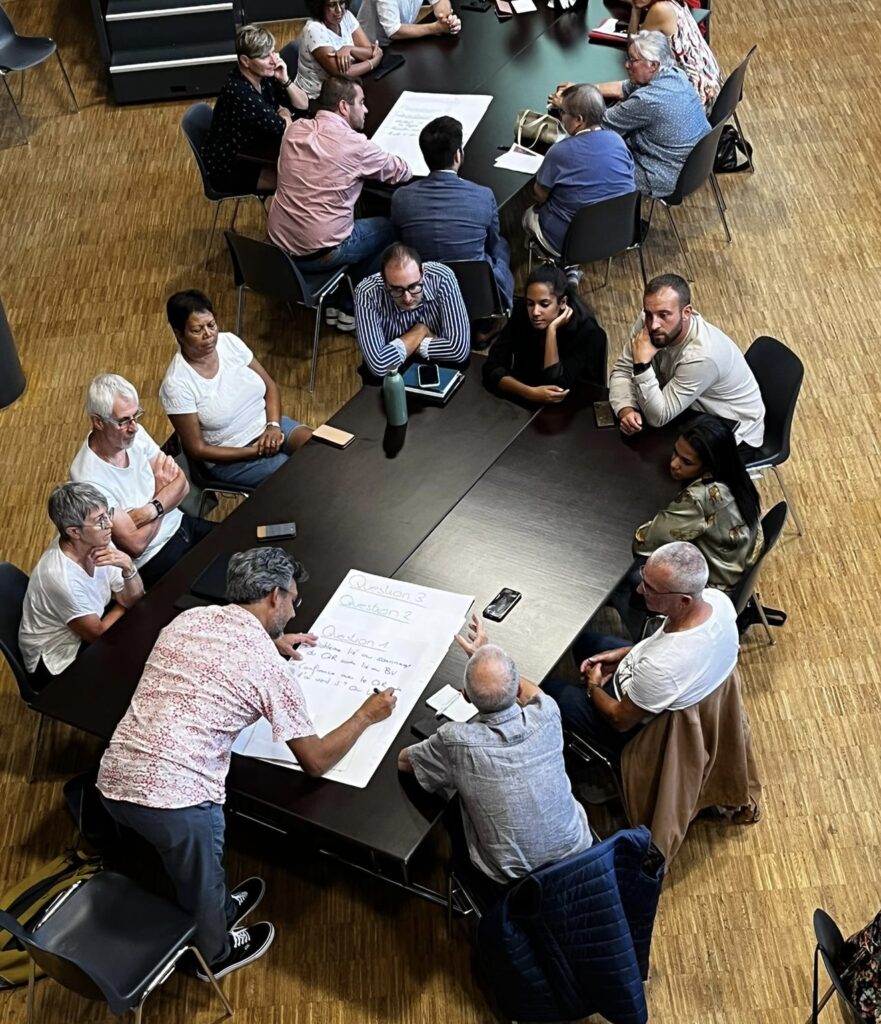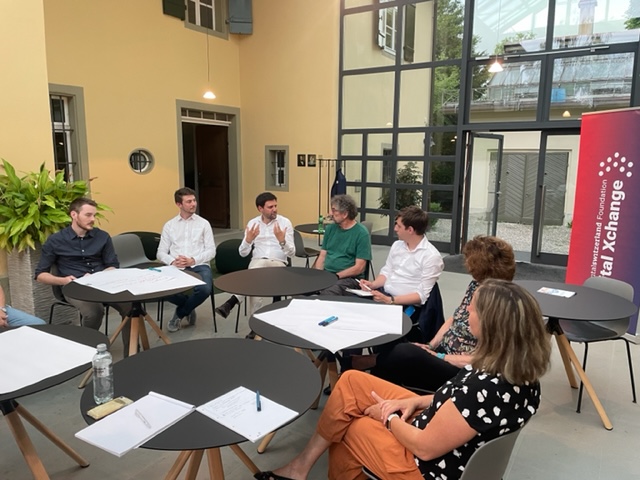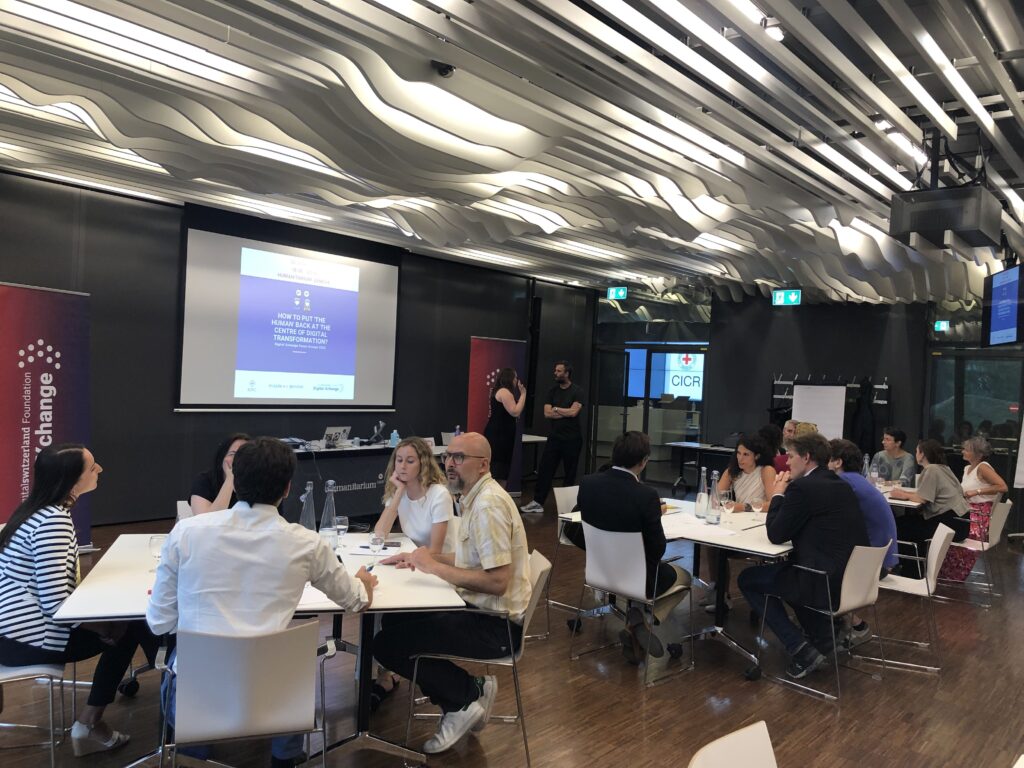Fears and hopes of the population on digitalisation, Series of public focus group 2022
As part of its Digital Xchange project, the digitalswitzerland Foundation organised in collaboration with some of its partners, a series of Swiss-wide public focus groups. The aim was to offer an open forum for the population to raise questions and discuss the opportunities and challenges of a rapidly advancing digital future. As a result, key fears and hopes were captured.
In different parts of Switzerland and in collaboration with partners such as the International Committee of the Red Cross (ICRC), Kanton Aargau, Ville de Martigny, and Haute Ecole Spécialisée de Suisse occidentale (HES-SO), diverse groups of participants expressed their views, shared their experiences, their hopes and fears, as well as their ideas on how to foster an inclusive digital transformation. The content of these interactions fed into the discussion between decision-makers about our digital future on 5 September in Bern at the Digital Xchange Forum. The exciting event to place on the same day as the launch of Swiss Digital Days in Bern.

Change is the only constant
Overall, people’s mindset is adapting to the evolving digital environment. Generally, many people have a positive view of the new digital technologies and see them as a tool that has the potential to generate value for business and unlock benefits for society.
However, deep fears remain.
Preparing for a digital future
Many of the participants realise that mastering digital tools is becoming a prerequisite for economic, social and cultural integration, and worry that digitalisation can amplify pre-existing socio-economic inequalities. In particular, older generations fear being left behind by failing to use new digital tools.
On this point, everyone agrees that the key answer to “keep up with” and “benefit from” digital technologies is training. There’s an urgent need to develop skills and competences by setting up adequate training for various types of users (i.e., children, teenagers, adult workers, retirees…). Nevertheless, the question remained as to what are the skills needed? How can we train people who are professionally active and/or retired? Who is responsible for providing such training? Many participants raised the importance of having regular support, for example, by providing a space where people can go to get the digital support they need.

The importance of governance
Furthermore, the majority of people were concerned about the grey areas of digital governance: fear of the consequences of a lack of limits, framework, and regulations with regard to fundamental aspects of our lives, such as use of private data, security, mass surveillance, individual freedoms or polarisation of opinions.
A strong consensus arose that the discourse surrounding digitalisation can be too complex and technical, which can generate mistrust and even self-exclusion. As a result, there is a clear aspiration to put the human back at the centre and to strengthen the debate on the human and social aspects of digital transformation. This will enable each of us to benefit from more information and to be better integrated in the associated decision-making processes.
Would you also like to be part of these discussions, collaborate with different stakeholders and become a partner of the digitalswitzerland Foundation ?
Please, email Sébastien Kulling, sebastien@digitalswitzerland-foundation.org
Or Sandrine Denti, sandrine@digitalswitzerland-foundation.org









